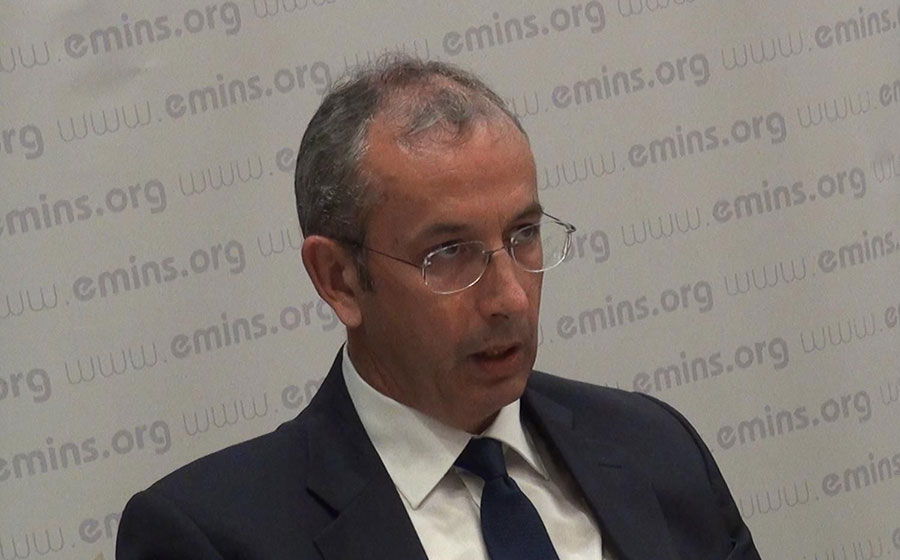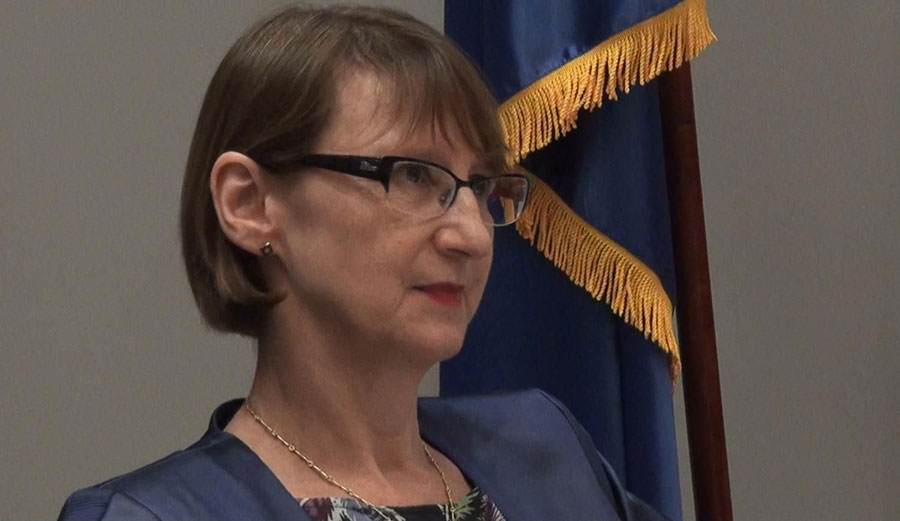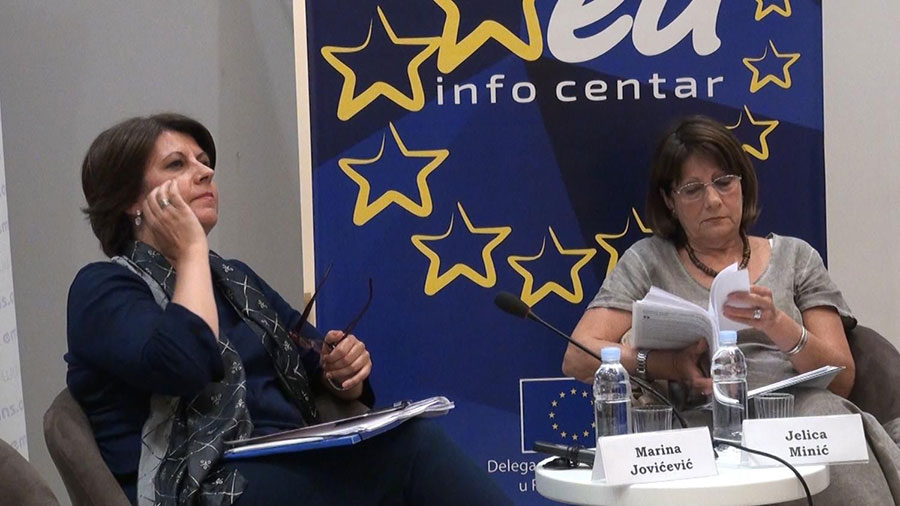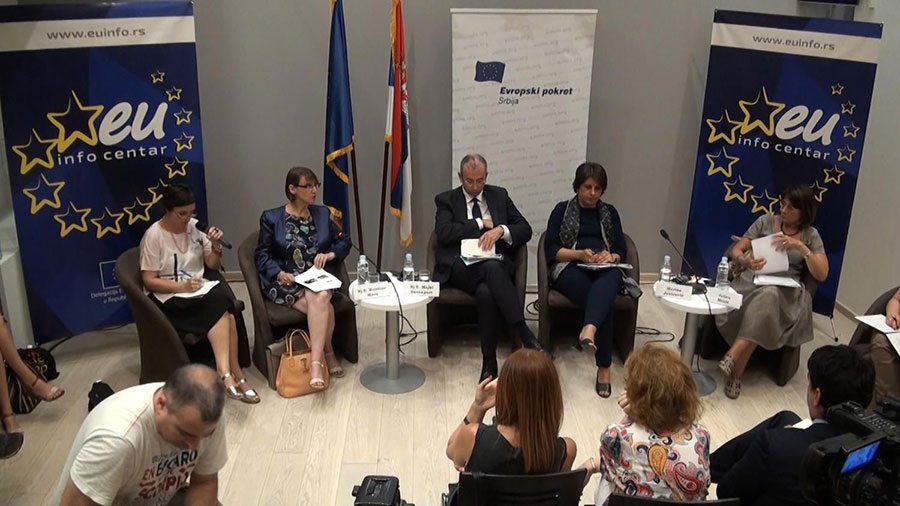The recently held EU Summit on Western Balkans confirmed EU’s commitment to the enlargement process, said the participants of the public debate “Follow-up to the EU-Western Balkans Summit in Paris” held within the series of “European stories” debates organised by the European Movement in Serbia and EU Info Centre.
Head of the EU Delegation to Serbia Michael Davenport said the Summit in Paris gave an important incentive to the enlargement process, at the moment when there was a lot of talking about fatigue and the UK referendum. According to him, the Summit was held “at the perfect moment” with enlargement agenda being confirmed at the highest level. Also, he said, when it comes to Serbia, the Summit was an opportunity to improve the accession process in light of the upcoming opening of next chapters.
He reminded that last year in Vienna, the EU had allocated one billion euros for connectivity investments in the region, with the first tranche of 200 million euros earmarked for ten priority projects in the area of energy and transport.
Two projects will be implemented in Serbia, whereas the third entails a railway interconnection between Serbia and the FYROM, a project worth 36 million euros to which the EU will contribute 75% of the total project value, he said.

FoNet
The fourth project, he explained, is an inter-modal railway terminal in Belgrade worth 16 million euros to which the EU will contribute 80% of the value.
This year, he said, additional projects were agreed along with the allocation of 100 million euros.
When it comes to Serbia, one of the three projects includes a Serbian railway interconnection with Bulgaria to which the EU will make a contribution of 43 million euros.
Each of the countries in the region will benefit from improved infrastructure, Davenport said.
He said a decision was made in Paris to focus on the issue of energy efficiency and green growth for which the EU had allocated 50 million euros for the entire region.
As Ambassador Davenport put it, by arranging road maps in the areas of regional cooperation, as well as transport and electricity, the Summit made an important step towards strengthening of these fields.
French Ambassador Christine Moro said the Paris Summit, which is part of the Berlin Process launched in 2014, was held in a particularly important moment, that is immediately after the UK referendum, at the time when a green light was expected for the opening of chapters 23 and 24 within Serbia’s EU accession negotiations.

FoNet
According to her, main goal of the Berlin process is to strengthen cooperation among the countries in the region and implement concrete projects.
Moro notes that projects can kick off right now and that there is no need to wait for the membership. This applies especially to infrastructure projects, having in mind that they take several years to implement.
She said it was important to make progress in the implementation of ten projects defined in Vienna in 2014, and reminded that two new projects were identified this year in Paris.
Moro also said that, compared to the previous Summit held in Vienna, the Paris Summit brought a higher level of participation of civil society. Summits are not mere meetings of different governments, but also high energy gathering conferences, she said, reminding about the meeting of civil society representatives and the business forum which served as a platform for the exchange of opinions.
Assistant Minister of Foreign Affairs Marina Jovicevic said summits such as the one held in Paris were significant because they speed up tackling of many issues. Paris conveyed a good political message regarding the opening of chapters 23 and 24, noting that giving a green light would certainly take longer if it were not for the Summit.
Also, she said, the biggest achievement of Paris Summit was the decision on setting up the Regional Youth Cooperation Office.
Chair of the Forum for international relations of the European movement in Serbia Jelica Minic said the role of civil society strengthened significantly since the first Summit which took place in Berlin.

FoNet
She said a number of meetings were held among civil society representatives, reminding about the civil, youth and business forums. The Summit was “a breakthrough for the civil society,” she underscored.
The importance of Paris Summit lies in its high level nature and the fact that it gathered European and EU leaders and brought together businessmen and the youth by setting up the Regional Youth Cooperation Office. She added that on the margins on the Summit, chambers of commerce held a meeting which gathered 20 companies from the region engaged in energy, transport, IT. Minic said that connecting business people in such a manner might be a sign that the region was up for a faster EU integration.




